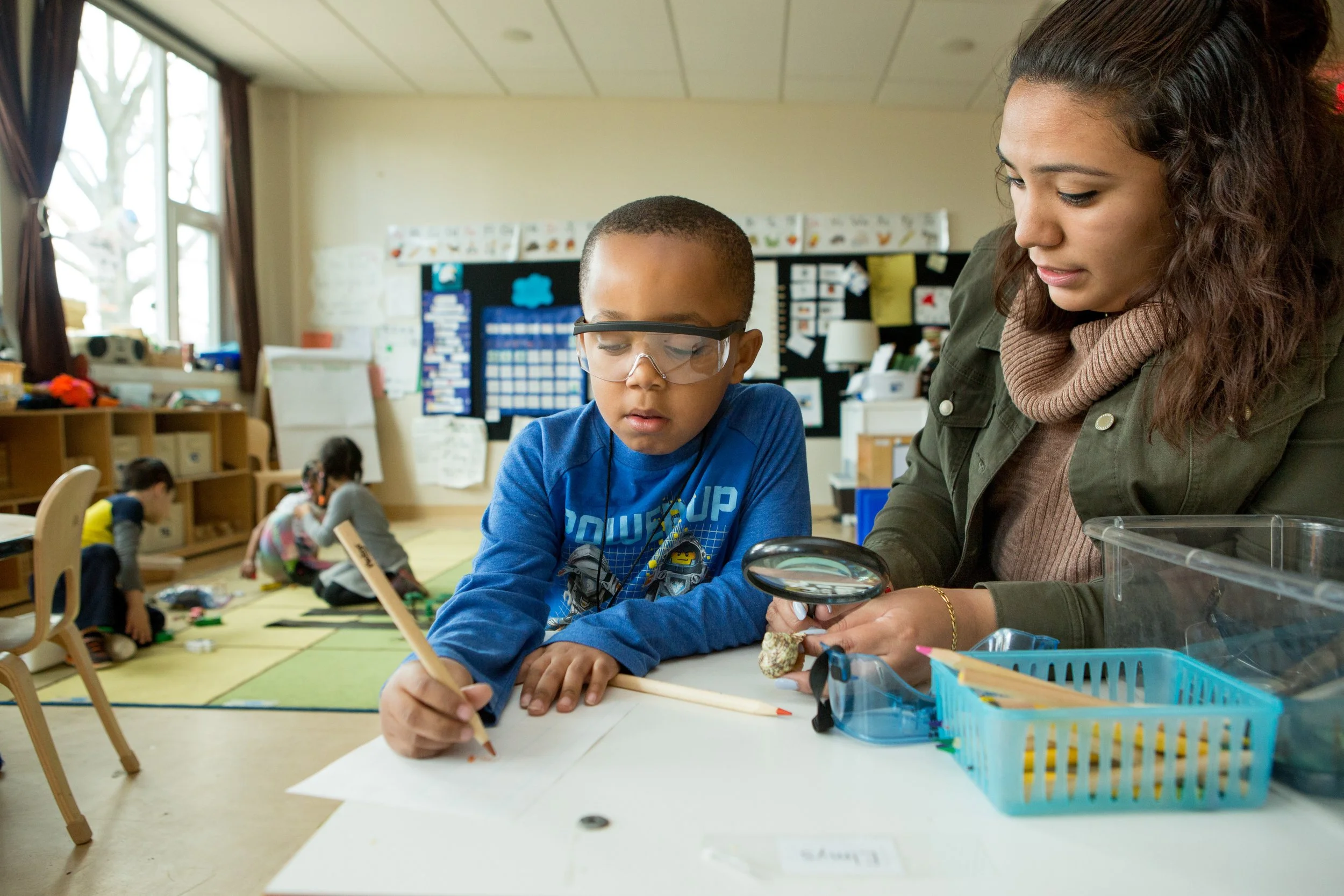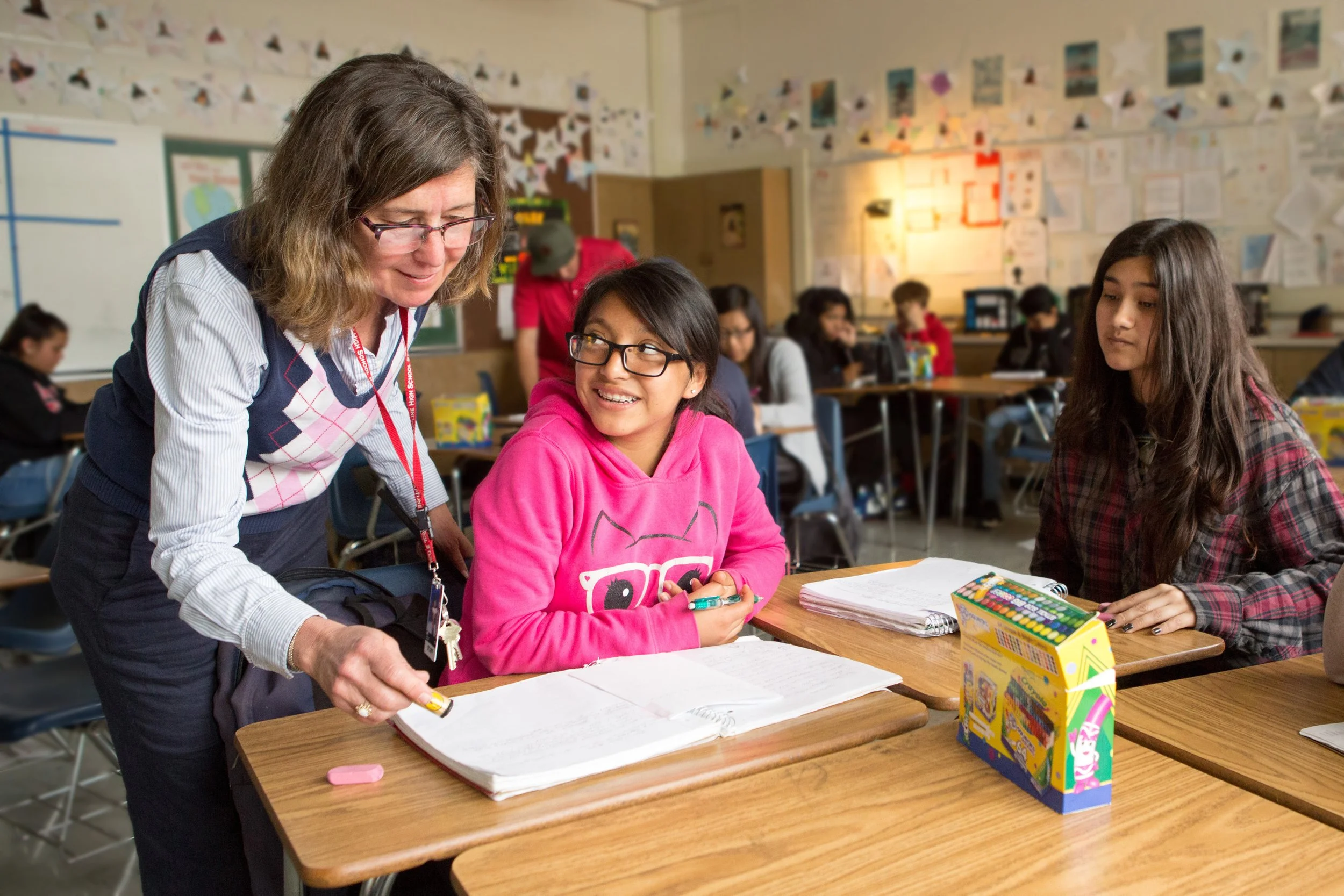Sharing, Expanding, and Enhancing Special Education Services in Saint Louis City
A co-op to build sustainable partnerships between public schools.
Where are there challenges?
Public education is governed by layers of rules and regulations protecting students and educators. Special education adds another layer to all of that. Our schools work hard to ensure students with physical or cognitive disabilities or other learning challenges receive the equal and robust education they deserve and are entitled to receive.
In St. Louis City, all of those layers are duplicated across each school system, be it large or small. This spreads already scarce resources thinner. Through partnership fostered by the St. Louis School Leaders Collaborative, educators across the city are coming together to find ways to streamline and improve special education services.
This shared services Co-op will add staffing, reduce wait times for families seeking services, and improve the quality of education for students with special needs.
Schools in St. Louis strive to deliver the best education possible to all of their students. Current complexities and costs of special education service delivery make that a challenge at times.
St. Louis students are highly mobile. A student's records and learning plans rarely follow them to a new school. Plus, schools in St. Louis have different record-keeping software, causing delays in implementing a learning plan for a new student.
There's a shortage of certified special education teachers and professional service providers like speech language pathologists and behavior specialists.
State and federal funding doesn't cover the costs of additional aides and therapists a student needs.
Where we can improve
Educators and administrators who work in special education in St. Louis told researchers they desire more coordination, cooperation, and sharing of space and resources. Here’s some of what they said would improve special education in the city:
Common space. A shared autism classroom, for example, located one at one school in the city that could accommodate students from multiple schools.
A deeper bench. Having substitute paraprofessional and certified special education teachers would alleviate some staffing challenges.
More sharing of outside services providers. Having a single contract for therapists, specialists and consultants would reduce bureaucracy and costs.
Learning together. Schools partnering together for professional development that’s specific to special educators will improve skills for teachers and foster continuity across schools, even if a student moves.
Chipping in. If several schools purchased software together, it could reduce costs and make it easier for administrators to communicate.
“Sharing is caring.” It’s something our children learn at a very young age, often in the schools the Collaborative is made up of. When it comes to improving special education services for St. Louis children, caring is also sharing. Through the collective will of the Collaborative and this well-executed pilot plan for better special education services, St. Louis students will thrive.
There is a way to improve special education in St. Louis. Using the unity and coordination fostered by the St. Louis School Leaders Collaborative, schools will team up to pool resources and share best practices through a co-operative model.
Public schools will decrease their reliance on private contractors, lower costs to provide services, and allow more students to receive services at their school of choice. Shared costs will lead to a friendlier bottomline and keep dollars in city schools.
Over the next three years, the Special Education Co-op will establish shared services, test that model, and review the results.
Starting small, as this model does, gives partner schools time to sustainably expand to meet changing needs while maintaining trust. No matter the shared service or membership composition, creating cost-saving opportunities through sharing high-quality special education services will be the Co-op’s North Star.
In the years to come, the co-op will:
Offer an alternative to private service providers and contractors.
Expand the number of therapies it provides.
Explore permanent partnerships with institutions to ensure sustainability and neutrality.
Explore alternative placement options for schools unable to meet the needs of a student in their home school.







